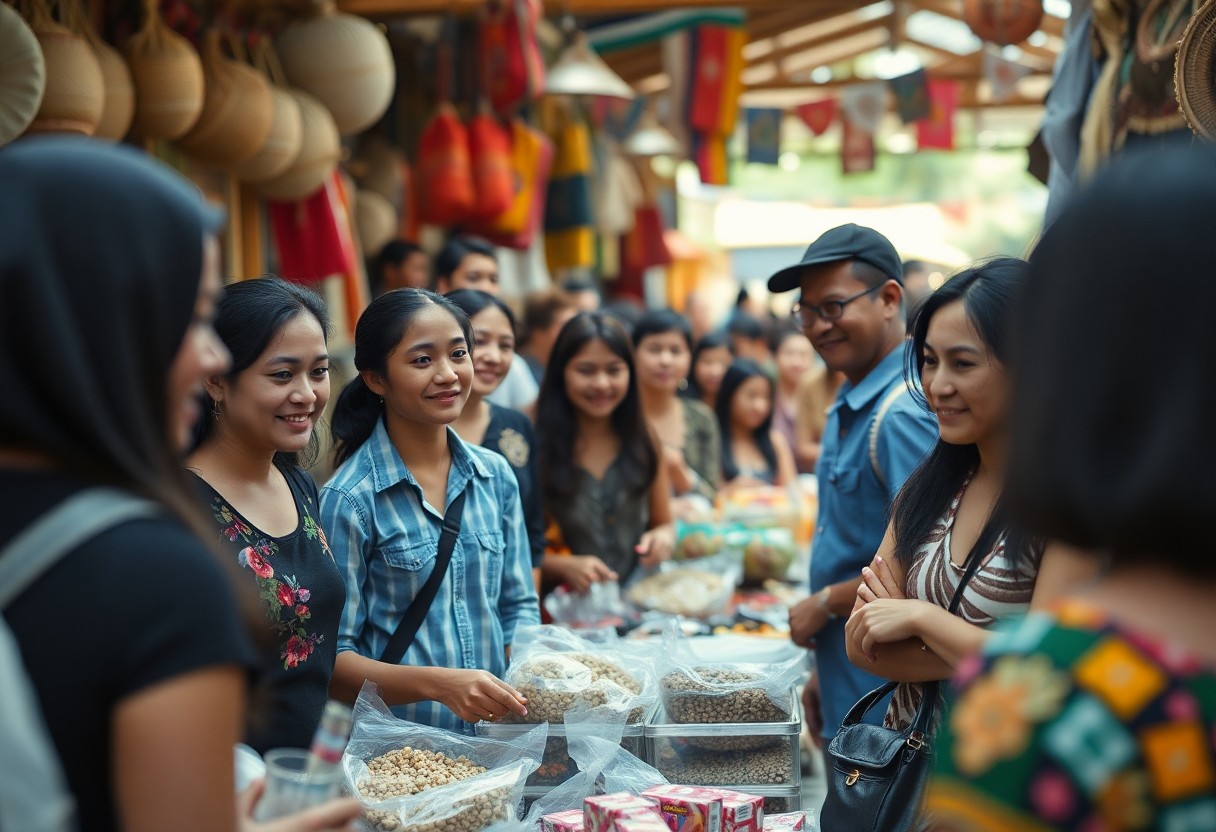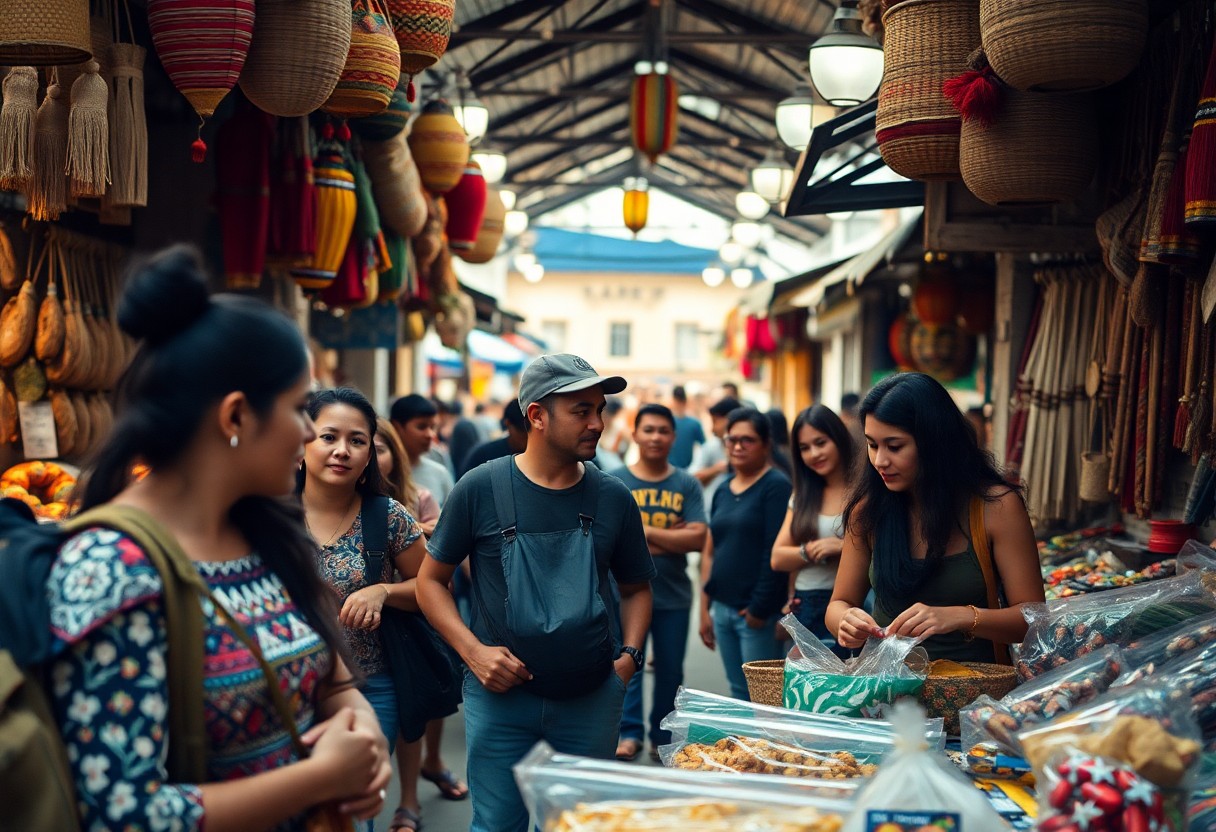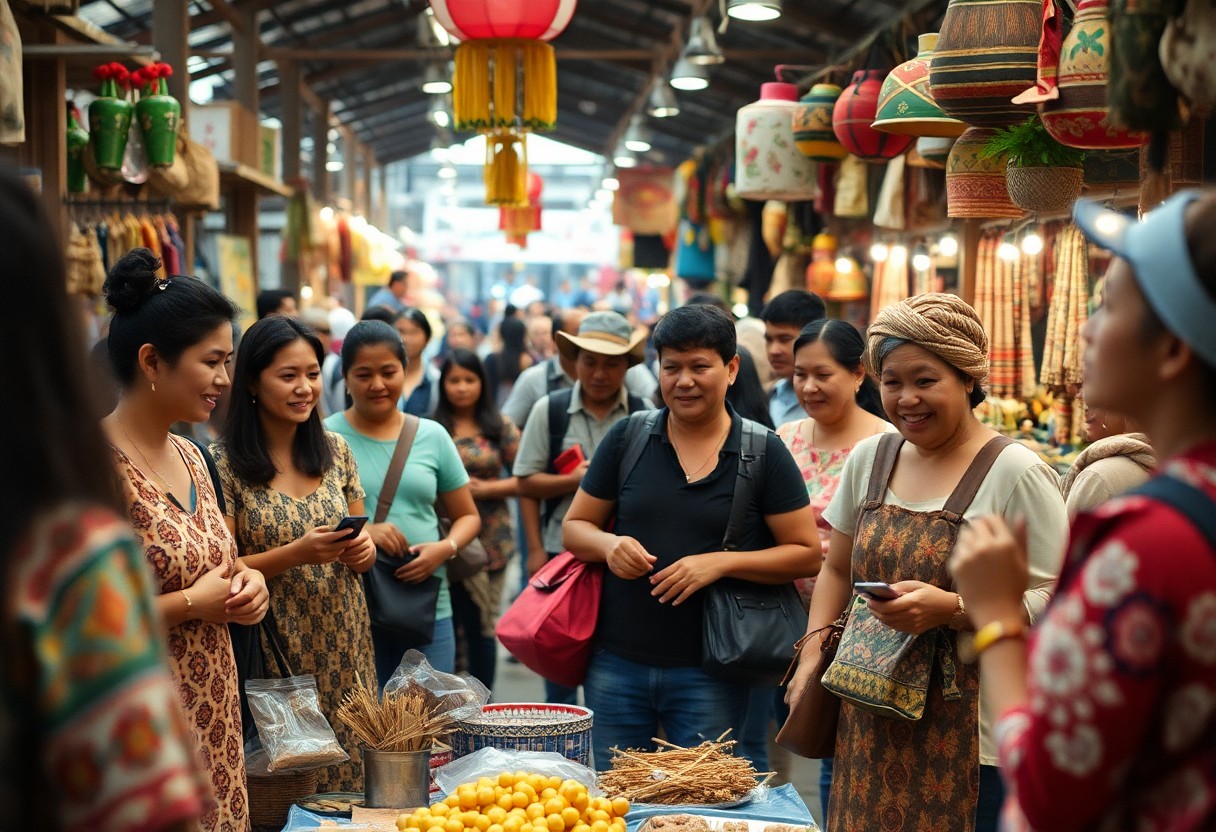Diversity enriches your travel experiences, but it is crucial to embrace it responsibly. By incorporating sustainable practices into your journey, you can contribute positively to local cultures while minimising your impact on the environment. This guide will provide you with effective tips to help you navigate through vibrant cultures, ensuring that your adventures not only fulfil your wanderlust but also promote respect and understanding of the communities you visit.
Understanding Sustainable Travel
Your journey towards sustainable travel begins with understanding its core principles. Sustainable travel focuses on minimising your environmental impact while maximising cultural respect and engagement. By making informed choices, you can ensure that your travels contribute positively to the destinations you visit and help preserve their unique heritage for future generations.
Definition of Sustainable Travel
Travel that seeks to reduce its environmental footprint, supports local economies, and fosters cultural exchange among travellers and communities is often referred to as sustainable travel. This approach encourages experiences that are beneficial not only for you but also for the places you explore, ensuring their preservation and integrity.
Importance of Responsible Travel
Sustainable travel promotes an ethical approach to exploring the world, prioritising the protection of our planet and cultures. This method of travel emphasises respect for local traditions and the environment, enabling you to connect with communities on a more meaningful level.
To navigate the complexities of the modern travel landscape, you should consider the significant impact your choices have on the environment and local populations. By actively participating in responsible travel, you are contributing to the conservation of natural resources and supporting local economies. This ensures that your adventures do not come at the expense of the communities you visit or the planet itself, promoting a sustainable future for all. Your actions can lead to positive change, encouraging others to follow suit and cultivate a collective responsibility towards our shared world.
How to Choose Your Destination
Even when seeking adventure, choosing your destination thoughtfully can significantly enhance your travel experience. Prioritise locations where cultural diversity thrives, enabling you to immerse yourself in rich traditions and vibrant communities. Look for places that demonstrate a commitment to sustainability, ensuring your presence contributes positively to both local culture and the environment.
Researching Cultural Significance
If you genuinely wish to engage with the local culture, take time to learn about the destination’s history, traditions, and social dynamics. This understanding allows you to appreciate the community’s values and practices, enriching your experience while showing respect to local inhabitants.
Considering Environmental Impact
Impact your choice of destination by assessing its ecological footprint and sustainability practices. Opt for regions prioritising conservation efforts, as this fosters an environment where both nature and culture can flourish. Seek out eco-friendly accommodations and participate in responsible tourism activities that support the local economy without causing harm to the ecosystem.
Destination selection plays a significant role in your travel’s overall sustainability. Air travel generally has a large carbon footprint, so consider staying closer to home or choosing destinations with lighter travel options like trains. Research the local conservation practices and support initiatives protecting endangered species and habitats. Furthermore, embrace destinations with strong wildlife protection laws; these areas offer unique opportunities to witness nature while prioritising its preservation. Your decisions not only shape your holiday but can also positively influence the places you visit and the people you meet.

Tips for Engaging with Local Cultures
Clearly, engaging with local cultures enriches your travel experience. To do so responsibly, consider these tips:
- Ask for permission before taking photos.
- Participate in local customs or festivals.
- Respect local norms and etiquette.
- Motivate conversations with locals through active listening.
After all, meaningful interactions with locals enhance your understanding of their culture and traditions. For more insights, explore Sustainable Travel Tips | It’s Your Yale.
Learning Basic Local Language
On your travels, picking up a few phrases in the local language can significantly enhance your interactions. Simple greetings and expressions of gratitude showcase your willingness to engage and foster mutual respect.
Supporting Local Artisans and Businesses
With a conscious effort, you can positively impact local communities by supporting artisans and businesses. By choosing to buy handcrafted items and dining at local restaurants, you contribute directly to the local economy. This not only ensures that your money stays within the community but also encourages preservation of traditional crafts and cultural practices that might otherwise fade away. The more you engage, the more authentic your experience becomes, all while promoting sustainable practices.

Responsible Transportation Options
To engage in sustainable travel, it’s necessary to choose responsible transportation options that minimise your environmental impact. Opt for public transport such as buses and trains, which not only reduce your carbon footprint but also provide a chance to interact with locals and experience authentic cultural exchange. When possible, consider walking or cycling, allowing you to truly absorb the sights, sounds, and feel of your destination while benefiting your health.
Eco-Friendly Travel Choices
Responsible travel choices like using electric vehicles, carpooling, or choosing eco-buses significantly contribute to a greener journey. Look for transport services that have implemented sustainable practices, ensuring that your travel aligns with your commitment to preserving the environment and embracing cultural diversity.
Reducing Your Carbon Footprint
Little changes in your travel habits can lead to substantial reductions in your carbon footprint.
It is vital to adopt small measures such as selecting direct flights, as take-offs and landings are the most carbon-intensive phases of air travel. Alternatively, consider the environmental benefits of travelling by train or bus, which can dramatically reduce the emissions associated with your trip. Also, aim to pack lightly; the less weight in transport, the lower the emissions. By being conscious of these choices, you help safeguard our planet while enjoying a fulfilling travel experience.

Factors to Consider When Interacting with Locals
After arriving in a new location, you should take several factors into account when interacting with locals. These considerations can help foster positive relationships and enhance your travel experience:
- Awareness of cultural differences
- Appropriate language use
- Respect for personal boundaries
- Consideration of local customs
After taking these factors into account, you can engage with locals in a thoughtful and respectful manner.
Respecting Cultural Norms
Assuming you know the norms and traditions of a place can lead to misunderstandings. It’s crucial to conduct research beforehand and observe social cues when you arrive. Being attuned to your environment allows you to avoid cultural faux pas and demonstrates your willingness to engage with the local community respectfully.
Understanding Social Dynamics
Consider the social hierarchies and relationships within the local community, as they can vary significantly from what you are accustomed to. While in public, be aware of age, gender, and economic factors that influence interactions. With this context, you will be more equipped to navigate local customs effectively. Some cultures may prioritise conversation with elders, while others might encourage a more casual approach. Being sensitive to local nuances can enrich your connections and provide deeper insights into the cultural landscape of your destination.
How to Leave a Positive Impact
Many travellers wish to leave a positive imprint on the communities they visit. By prioritising sustainability and engaging responsibly, you can foster goodwill and enhance the cultural experience for both yourself and the locals. This involves choosing eco-friendly accommodations, respecting local traditions, and supporting small businesses. Your approach can create meaningful connections, ensuring that your journey contributes to the conservation of the environment and the preservation of cultural diversity.
Volunteering and Giving Back
Giving your time to community projects while travelling can create a reciprocal relationship. By volunteering, you enhance your understanding of local issues, and your efforts can provide significant assistance to those in need. Whether it’s teaching English, helping with environmental initiatives, or supporting local artisans, your contributions help foster development and demonstrate a commitment to social responsibility.
Sharing Your Knowledge and Experiences
Positive exchanges with locals can enrich your travel encounters while offering valuable perspectives. By sharing your knowledge, you can inspire others, building bridges between cultures. Engaging in discussions about your home country, sharing sustainable practices, or exchanging culinary techniques can promote mutual understanding. Additionally, when you recount your adventures through blogs or social media, you help to raise awareness of responsible travel, inspiring fellow travellers to adopt similar principles.
It’s imperative to approach these exchanges with humility and respect, acknowledging that your experiences are just one part of a diverse tapestry. By sharing valuable insights, whether about local customs or environmental practices, you contribute to a broader dialogue that encourages both parties to learn and grow. In doing so, you not only celebrate cultural diversity but also help foster a sense of community, which can lead to positive changes across the globe.
Summing up
Drawing together the principles of sustainable travel, you can enhance your experiences while respecting local cultures and environments. By choosing eco-friendly accommodations, supporting local businesses, and engaging with communities in a thoughtful manner, you not only enrich your own journey but also contribute positively to the destinations you visit. Embrace cultural diversity by being open to learning, participating in local traditions, and understanding the significance of your actions. In doing so, you’ll foster meaningful connections and promote a responsible approach to travel that benefits both you and the world around you.
FAQ
Q: What are some important tips for travelling sustainably while experiencing cultural diversity?
A: When travelling sustainably, it is important to choose eco-friendly transport options, such as trains or bicycles, to reduce your carbon footprint. Opt for local accommodations that practice sustainability, like those using renewable energy or sourcing food locally. Engage with local communities by participating in cultural experiences that respect traditions and support local artisans, ensuring that your travel expenditure benefits the community.
Q: How can I support local cultures while travelling responsibly?
A: Supporting local cultures starts with educating yourself about the customs, traditions, and history of the area you are visiting. Participate in local events or workshops to learn from residents and support their crafts. Always ask for permission before taking photographs of individuals or sacred sites. Additionally, choose to eat at local eateries rather than international chains to help preserve the culinary heritage of the region.
Q: What should I consider when engaging in volunteer tourism to ensure it is ethical?
A: When considering volunteer tourism, ensure that the organisation you choose is transparent about its operations and the impact of its projects. Check that they prioritise the needs of the local community and involve local stakeholders in the planning and execution of projects. Avoid any initiatives that may displace local workers or disrupt communities. Contributing your skills in a way that genuinely benefits locals will enhance your travel experience while promoting ethical engagement.




